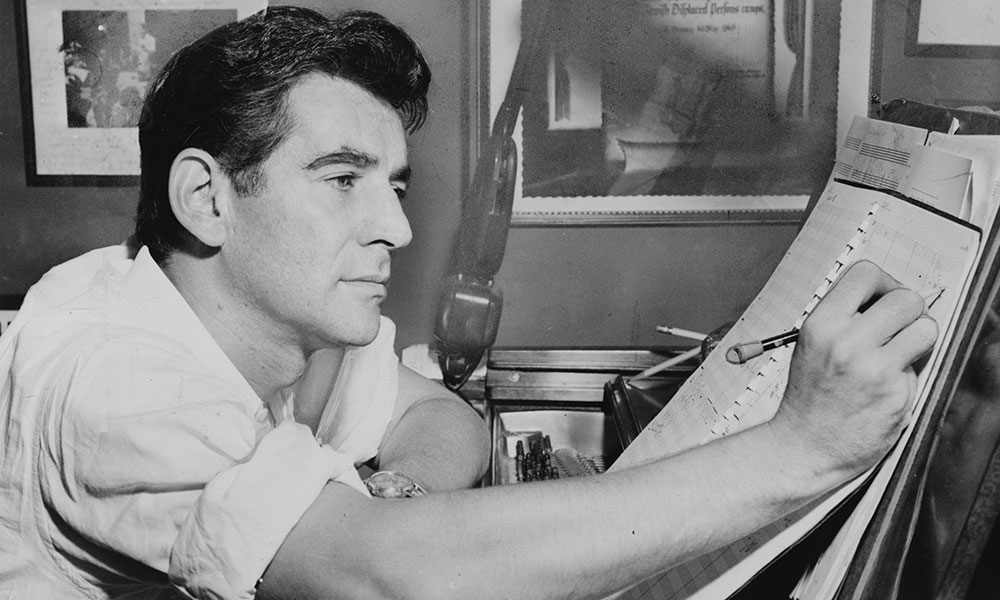Back in 2002, American Idol made a ratings splash with TV viewers young and old in America. The reality music TV revolution was taking hold: Soon after, American audiences had everything from The Voice and The Sing-Off to America’s Got Talent to whet their appetite for competitive reality programming. Did you know that the format was a hit with American youth more than forty years beforehand? From 1958-72, CBS aired New York Philharmonic Young People’s Concerts, a series brought to TV by famed American composer and then-New York Philharmonic Music Director, Leonard Bernstein. For three of those years, the concerts were even aired during prime-time hours—something all but unheard of these days. They included orchestra performances by the Philharmonic of the works of modern composers, such as Aaron Copland and Gustav Holst and inspiring lectures on all aspects of music. The Young People’s Concerts were also used to debut some of the finest, youngest classical music talent the world had to offer at the time. And maybe most importantly, the concerts helped widen the appeal of classical music among America’s youth.
On November 10, the Saratoga Springs community will have the chance to relive one of the Young People’s Concerts, pieced together by the Skidmore College orchestra, faculty and some very special guests. As part of the college’s ongoing Leonard Bernstein at 100 series and taking place at the Arthur Zankel Music Center, the orchestra will be performing a reboot of the second half of the 1962 Young People’s Concerts broadcast that featured a performance of “Carnival of the Animals” by French composer Camille Saint-Saëns. The orchestra will be joined by two guest musicians, who auditioned for and actually performed during the ’62 airing: world-renowned solo bassist Gary Karr and clarinetist and Skidmore faculty member Paul Green. Additionally, Bernstein’s son, Alexander, will be on hand to take part in a special panel discussion during the program.
“It’s amazing to think that so many people sat down and watched [the Young People’s Concerts] every weekend,” says Alexander, who had a behind-the-scenes vantage point of the concert series as a child—and even got to sit in on some of the auditions, Karr’s in particular. Karr was 20 when he performed on the show, and Green, just 13. Says Karr of the show’s impact: “Bernstein’s Young People’s Concerts was the classical music equivalent of America’s Got Talent. It had a large viewing audience, and along with the The Bell Telephone Hour, it was the only opportunity for classical music performers to be recognized on a national scale.” For Green, it was a once-in-a-lifetime opportunity to perform with one of the world’s greatest orchestras, the Philharmonic, under the tutelage of one of the musical world’s biggest stars in Bernstein. “It’s an emotional return to one of the most important events in my life,” says Green. “We did the concert live at Carnegie Hall, and it was broadcast on national television a week later. So I could see myself on television from my house.” Bernstein led a total of 53 Young People’s Concerts, garnering four Emmy awards and seven nominations for the series.
The Young People’s Concerts series had actually been around since 1924, long before Bernstein took the job as the New York Philharmonic’s Music Director. But it attained a new level of international popularity and success under Bernstein’s leadership, especially with his decision to bring the performances to TV. Alexander Bernstein was only a toddler when the first performance aired in January 1958, but soon after, he was old enough to tag along with his father, sometimes arriving to technical rehearsals as early as 6am. “It was very exciting,” says Alexander. “I’d get to run around Carnegie Hall and then, afterwards, Lincoln Center, with my sister, or by myself. We just had the run of the place, going from the spotlight booth to backstage, stealing doughnuts from the musicians [and] going to the camera trucks outside.”

What really left an impression on the Alexander was his father’s dedication to learning and spreading the knowledge of music to others. “I grew up around a father who was constantly, daily talking about lifelong learning,” says Alexander. “He told all his music students, as well as others, that their charge was to make music in the world, not just in the conservatories [but] for each other.” Though Alexander didn’t follow in his father’s footsteps as a conductor/composer, he’s now the President of Artful Learning, Inc., a new learning model, based on his father’s vision, that places the arts and the artistic process at the center of education. He’s also a founding Chairman of the Leonard Bernstein Center for Learning at Gettysburg College. “My father said, ‘The best way to know a thing is in the context of another discipline,’” says Bernstein. Since the founding of the Leonard Bernstein Center for Learning in 1992, more than 250,000 students (mostly K-12) have benefited from its educational model, and more than 800 teachers currently use it.
During the panel discussion portion of Skidmore’s event, Alexander tells me he plans to talk about artful learning and how it was integral to his father’s approach to both performing and teaching music. “I like Skidmore a lot; I got to visit when I was taking my daughter around looking at colleges a couple of years ago,” he says. “It’ll be a lot of fun to revisit the Young People’s Concerts there, and look at the great faces of the musicians whom I remember so well.”
The Young People’s Concerts event and panel discussion is part of Skidmore’s fall concert series, entitled “Dream with We: Leonard Bernstein at 100,” commemorating the late composer’s 100th birthday, which occurred this past August 25. It will conclude with a concert on December 1 celebrating Bernstein’s humanitarianism. Skidmore’s concert series is one of thousands of others that have taken place as part of a two-year global celebration of Bernstein’s life and work.


